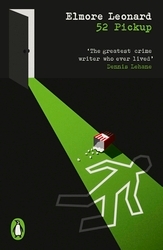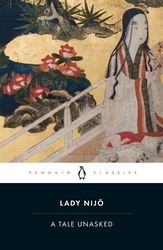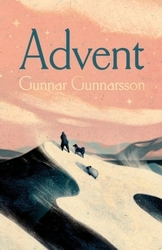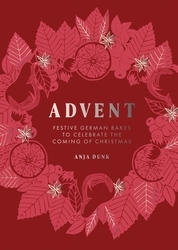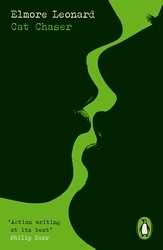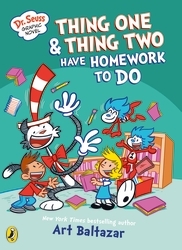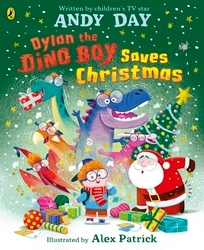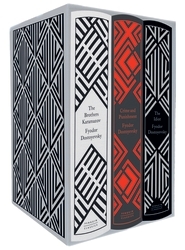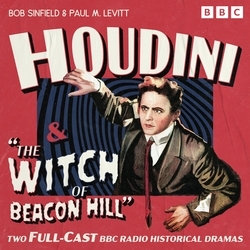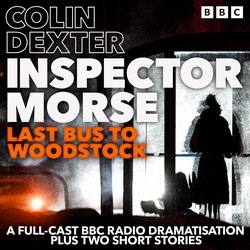- Books
- Series
- Authors
- Articles
Filters
Age
Publication Date
Format
Series
- A Commissario Brunetti Mystery (27)
- A Daisy Story (21)
- A Ladybird Book (28)
- A Puffin Book (103)
- Actiphons (51)
- Alex Cross (22)
- BBC Children's Classics (22)
- BBC TV Soundtracks (17)
- Baby Touch (55)
- Beatrix Potter Originals (21)
- Bluey (100)
- Bryant & May (16)
- Charles Paris Dramatisations (19)
- DOCTOR WHO (99)
- Diary of a Wimpy Kid (24)
- Discworld Novels (51)
- Do You Know? (52)
- Doctor Who (45)
- Doctor Who Target Novels – Classic Era (20)
- Everyman's Library Barbreck (16)
- Everyman's Library CHILDREN'S CLASSICS (63)
- Everyman's Library CLASSICS (238)
- Everyman's Library P G WODEHOUSE (103)
- Everyman's Library POCKET CLASSICS (41)
- Everyman's Library POCKET POETS (120)
- Everyman’s Library Contemporary Classics (169)
- Extraordinary Lives (16)
- Falco (20)
- Francis Thriller (51)
- Gargoylz (16)
- Green Ideas (21)
- Hairy Maclary and Friends (20)
- Harry Hole (16)
- Hey Duggee (114)
- How to Garden (22)
- In The Night Garden (17)
- In Their Own Words (23)
- Inspector Maigret (60)
- Jack Reacher (30)
- Jeeves & Wooster (20)
- Key Words (36)
- Key Words with Peter and Jane (36)
- Ladybird Audio Adventures (25)
- Ladybird Readers (180)
- Ladybirds for Grown-Ups (35)
- Learn with Ladybird (19)
- Learn with Peppa (102)
- Little Book of (31)
- Little Clothbound Classics (46)
- Magic Kitten (16)
- Magic Tree House (20)
- Meg and Mog (19)
- Middle School (17)
- My Secret Unicorn (20)
- Nick Stone (20)
- Pelican Books (54)
- Penguin Archive (90)
- Penguin Clothbound Classics (88)
- Penguin Essentials (74)
- Penguin Great Ideas (92)
- Penguin Little Black Classics (128)
- Penguin Modern (50)
- Penguin Modern Classics (1145)
- Penguin Modern Classics – Crime & Espionage (36)
- Penguin Monarchs (44)
- Penguin Readers (159)
- Penguin Science Fiction (18)
- Penguin Specials (41)
- Peppa Pig (337)
- Percy Jackson and The Olympians (16)
- Pocket Wisdom (22)
- Private (19)
- Puffin Classics (33)
- Puffin Clothbound Classics (16)
- Read It Yourself (179)
- Redwall (22)
- Richard Bolitho (30)
- Ross O’Carroll-Kelly (16)
- Spot (16)
- Stanley (19)
- Star Wars (91)
- Temperance Brennan (17)
- Ten Minutes to Bed (24)
- The Adams Family (29)
- The Cliffehaven Series (21)
- The Dragon Books (24)
- The Ladybird Expert Series (34)
- The News Quiz (27)
- The Oregon Files (16)
- The Originals (23)
- The Penguin English Library (90)
- The Roald Dahl Classic Collection (20)
- The Wardstone Chronicles (19)
- Topsy and Tim (34)
- Torchwood (20)
- Vintage Collector's Classics (21)
- Vintage Minis (43)
- Vogue on Designers (16)
- Wexford (24)
- Women's Murder Club (19)
Imprint
- Allen Lane (133)
- Arrow (2615)
- Arrow (Young) (112)
- BBC Books (604)
- BBC Children's Books (220)
- BBC Digital (243)
- BBC Digital Audio (2996)
- BBC Physical Audio (62)
- Bantam (631)
- Bantam Children (24)
- Bantam Press (114)
- Black Lace (194)
- Black Swan (727)
- Black Swan Ireland (22)
- Bodley Head (107)
- BookShots Digital (86)
- C W Daniel (80)
- Century (120)
- Chatto & Windus (154)
- Childrens Classics (61)
- Corgi (1214)
- Corgi Childrens (520)
- Corgi Pups (34)
- Cornerstone Digital (518)
- Cornerstone Press (35)
- Definitions (Young Adult) (64)
- Del Rey (121)
- Do Books Audio (21)
- Doubleday (99)
- Doubleday Childrens (20)
- Ebury Digital (521)
- Ebury Edge (45)
- Ebury Press (1181)
- Ebury Press (Fiction) (212)
- Ebury Spotlight (83)
- Eden Project Books (22)
- Evermore (27)
- Everyman (676)
- Fern Press (14)
- Fig Tree (42)
- Hamish Hamilton (44)
- Hammer (24)
- Hardie Grant Books (UK) (420)
- Harvill Press (89)
- Harvill Secker (132)
- Hutchinson (33)
- Hutchinson Heinemann (58)
- Inklore (31)
- Jonathan Cape (331)
- Ladybird (1792)
- Mainstream Digital (370)
- Mainstream Publishing (145)
- Merky Books (33)
- Michael Joseph (420)
- Nexus (98)
- Particular Books (83)
- Pelican (57)
- Penguin (8523)
- Penguin Audio (105)
- Penguin Business (72)
- Penguin Classics (3135)
- Penguin Ireland (14)
- Penguin Life (177)
- Picture Corgi (32)
- Pimlico (293)
- Pop Press (105)
- Portfolio Penguin (53)
- Preface Publishing (37)
- Puffin (2277)
- Puffin Classics (144)
- Quadrille (808)
- RHCP Digital (412)
- Random House Books (52)
- Random House Business (114)
- Red Fox (582)
- Red Fox Classics (52)
- Red Fox Picture Books (99)
- Rider (487)
- Sandycove (22)
- Square Peg (120)
- Tamarind (41)
- Tanoshimi (25)
- Torva (28)
- Transworld Digital (468)
- Transworld Ireland (77)
- Vermilion (828)
- Viking (112)
- Vintage (3284)
- Vintage Children's Classics (78)
- Vintage Classics (1243)
- Vintage Digital (804)
- Virgin Books (506)
- Virgin Digital (496)
- WH Allen (114)
- Warne (116)
- William Heinemann (16)
- Windmill Books (323)
- Yearling (174)
- Yellow Jersey (134)
- Young Corgi (73)
